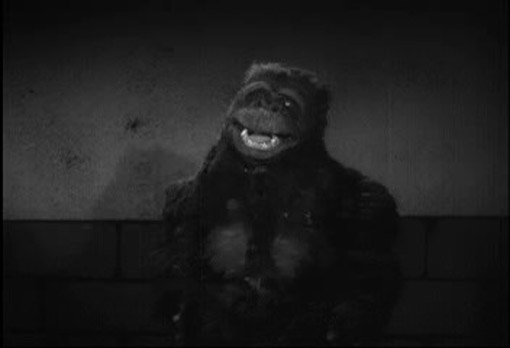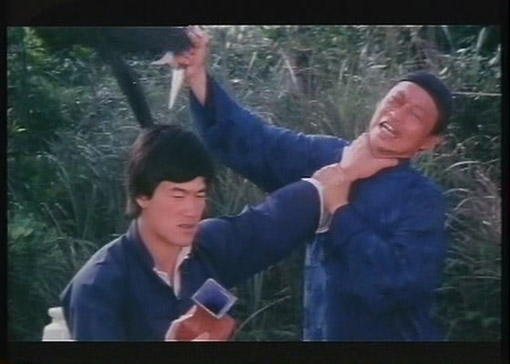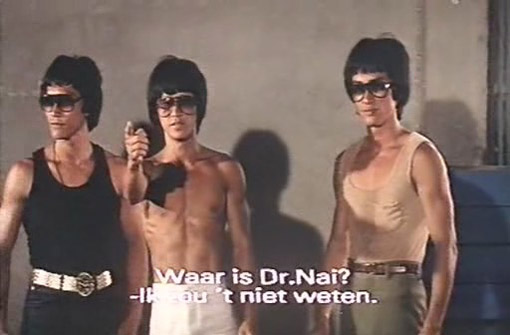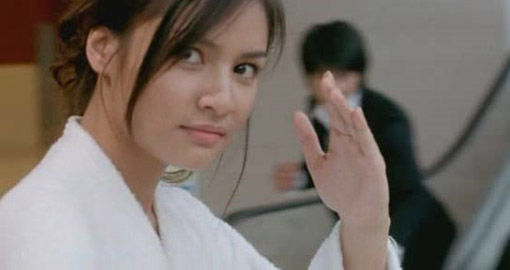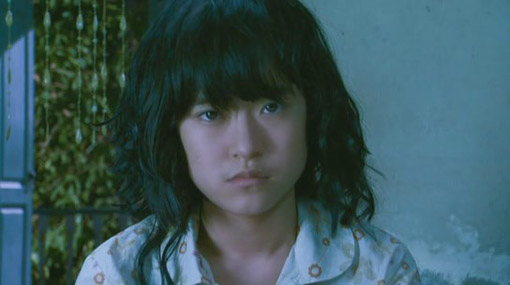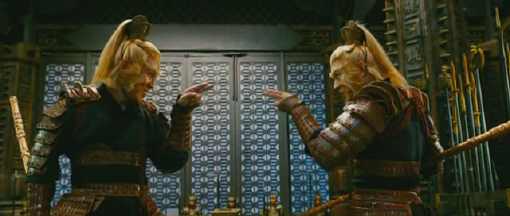How the Ape Girl Stole the Lotus Lamp
aka 白猿女三盜寶蓮燈

1962 HKMDB Link DianYing Link
HKMDB Link DianYing Link
Directed and written by Wong Fung
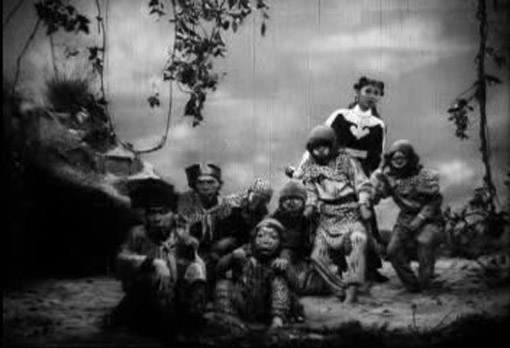
There is a lot of old Chinese cinema. Many films were made in the post-war period based on plays, operas, folk tales, and old novels. There was also a bunch of original content created. These old films have handpainted backgrounds, origins in operas and classical tales, and were produced quickly and cheaply. That doesn’t stop many of them from being interesting. I am fond of old-style effects, goofy plots, and stylized action as long as the film remains interesting. And in between all the older love/opera/drama type stories, there is a large pocket of wuxia/swordplay movies just waiting to be discovered. Although the audience for these films was large long ago, nowadays few people are even aware of them. Older Chinese people know of the films, but most of them don’t watch them regularly anymore, and even fewer have websites on the internet. So any specific film backgrounds I can find is few and far between (or in the case of this film, almost non-existent!) Heck, there is no IMDB entry for this film (no surprise there), and even the often reliable Hong Kong Movie Database has the wrong English name for the film.

Tribute is paid to these classic movies in the film Kung Fu vs. Acrobatic, which even co-stars Walter Tso Tat-Wah, one of the stars here and dozens of other classic films. How the Ape Girl Stole the Lotus Lamp is a lucky pick grabbed from a Chinatown movie store based solely on the pictures on the back of the VCD, which included some kids dressed up like monkeys. I am happy to report there are crazy monkey children in the film, but there are also lots of other cool retro effects. Even if I didn’t have my wife there to translate the film for me I would have been entertained (although slightly more confused.) The VCDs for these old films have no subtitles (why would they? I am one of the few non-native Cantonese speakers who would watch these) so the best to hope for is lots of fun stuff happening on the screen.

The VCD case makes the presence of Josephine Siao Fong-Fong well known, though at the time this movie was released (1962) she hadn’t taken off into super-stardom (where her major competitor would be the other, bigger 1960’s Cantonese sweetheart Connie Chan – seen here in Lady Black Cat) so Josephine has a supporting role in this film. Josephine Siao would later become a major leading lady, and participate in many of the Jane Bond films of the late 1960s and even do many films with her “rival” Connie Chan. She first appeared in 1954 and two years later won the Best Child Actor award for Orphan Girl. Like Connie Chan, she also had an impressive output in the 1960s, but in 1969 she slowed down her acting to focus on education and marriage (to actor Charlie Chin, which lasted three months – she later remarried and had children) She later appeared on TV as the bumbling plain Jane character Lam Ah Shun in 1977, followed by three films (one of them was Plain Jane to the Rescue, directed by a young John Woo). She is probably best known to fans from the 1990s for her parts as Fong Sai Yuk’s mother in the Fong Sai Yuk films. See the Jane Bond article for more of her films.

Sek Kin is another major Hong Kong actor making a supporting role here. Usually Sek Kin played villains and evil men in his movie roles. He was the ultimate Hong Kong villain character actor for decades. Oddly enough, although his character is a jerk in several scenes in How the Ape Girl Stole the Lotus Lamp, he isn’t the villain, and ends up doing some pretty noble things near the end. It was sort of weird seeing Sek Kin as a non-bad guy, I have only seen him in a few films but he was always over the top evil. Bruce Lee chose him as the villain in Enter the Dragon. At the time of this writing Sek Kin was still alive and kicking at age 95! He is also in Lady Black Cat where he plays a more common evil villain role.
Fitting with Chinese films, the cast is enormous, so here are the major players listed out (that way we can get shoutouts to all the more obscure Chinese actors and actresses that probably have next to nothing written about them in English.)
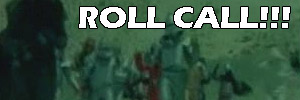
|



